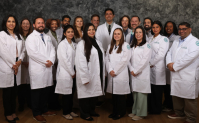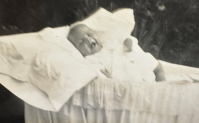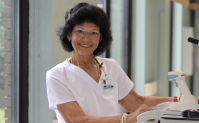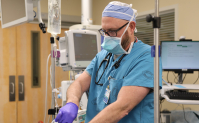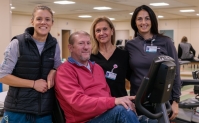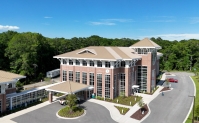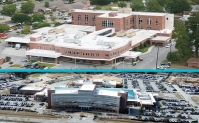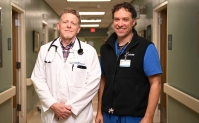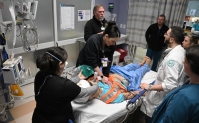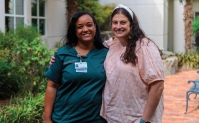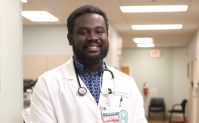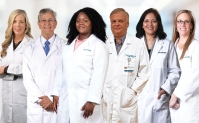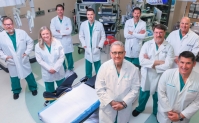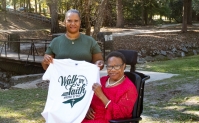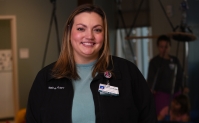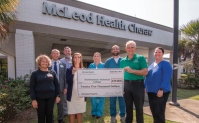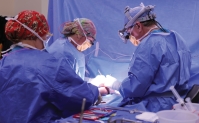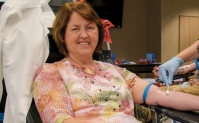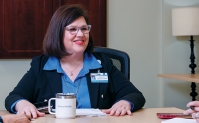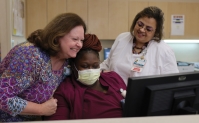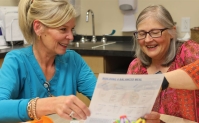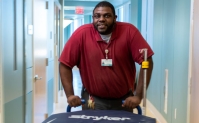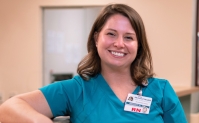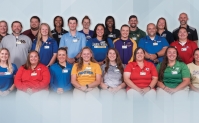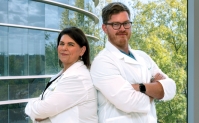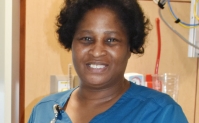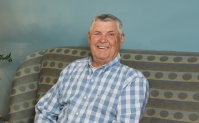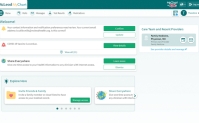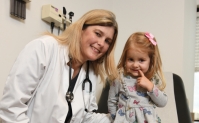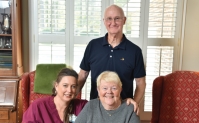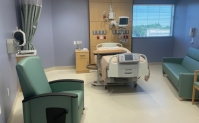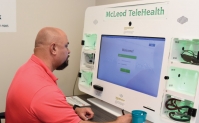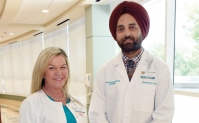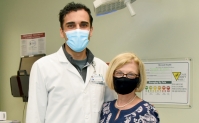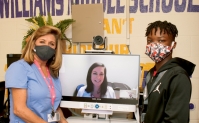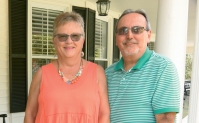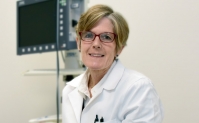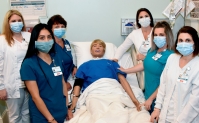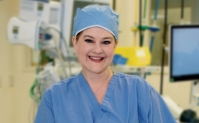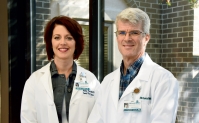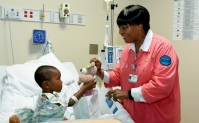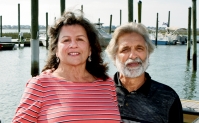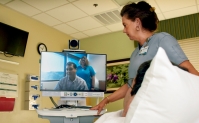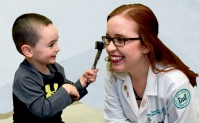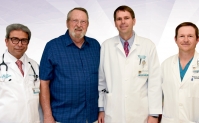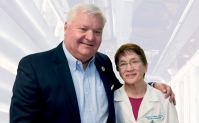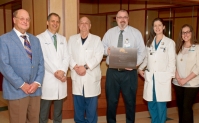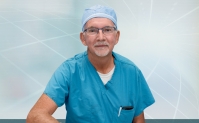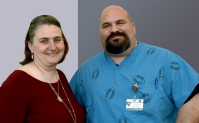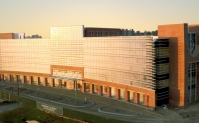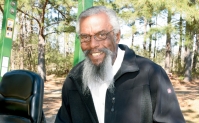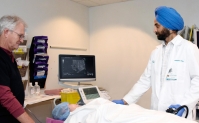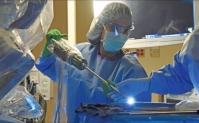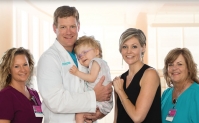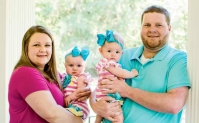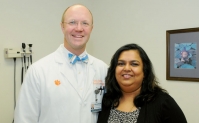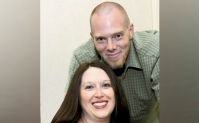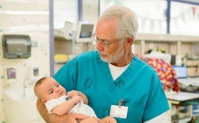You Inspire The Best in Us.
With the many advances in care and treatments, today’s patients have more and more reasons to expect the best outcomes. Here are the incredible stories of our patients and their journeys. Click on a thumbnail and scroll down to view each story.

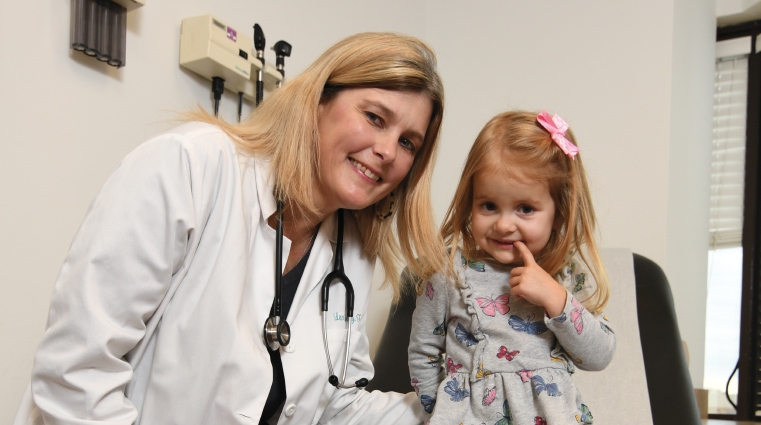
Partners in Caring
By Shaw Thompson
The Roles of Advanced Practice Providers in Delivering Medical Excellence
At McLeod Health, Advanced Practice Providers, or APPs, are key members of the health care team. However, not everyone is familiar with APPs and may have questions about the kind of care they provide, as well as the training and experience they possess to address healthcare needs.
“Advanced Practice Providers are an increasingly integral part of patient care at every level and touchpoint in our system,” said Dr. Catherine Rabon, McLeod Hospitalist and Chief Medical Officer for McLeod Health Cheraw, Clarendon, and Dillon. “As team members in our inpatient hospital departments, physician offices, emergency rooms and urgent care centers, APPs partner with physicians to create a continuous environment of care. Their skills and presence significantly increase patient access to the care they need.”
All APPs receive specialized training and provide care under the supervision of a doctor. There are several classifications of advanced practice providers, but most fall into one of two categories based on their training paths: Advanced Practice Registered Nurse (APRN) and Physician Assistant (PA).
Within the scope of APRN, there are several subspecialties, including Certified Registered Nurse Anesthetists (CRNA), Family Nurse Practitioners (FNP), and Certified Nurse-Midwives (CNM). To achieve these credentials, each provider is a registered nurse who has completed a master’s or doctoral program at an accredited institution.
“As a nurse anesthetist, I provide anesthesia for a variety of procedures offered at our hospitals, and care for patients prior to, during and following those procedures,” said Nichelle Coleman, CRNA, DNP, APRN, CCRN, with McLeod Regional Medical Center. “I keep a close eye on any changes in the patient’s condition and utilize my knowledge, experience and skill set to provide appropriate care. I also collaborate with an anesthesiologist to make the most informed treatment decisions possible.”
In their scope of practice, CRNAs like Nichelle may see many different patients on a daily basis but creating a trusted relationship in each encounter remains essential.
“Even though our preoperative interaction is brief, I enjoy holding my patients’ hands, reassuring them, or even praying with them, whatever is necessary to provide comfort,” said Nichelle. “I speak with my patients and assure them that we will take excellent care of them -- monitor each heartbeat, each breath they take throughout the surgery -- and then transport them to a recovery room where they can rest comfortably.”
Nurse Practitioners are the most common type of APRN, with more than 325,000 licensed in the United States according to the American Association of Nurse Practitioners. NPs are qualified to provide a range of both primary and specialty health care services where they diagnose and treat medical conditions and perform many of the same tasks as physicians, both in the hospital setting and outpatient medical care offices.
“We cover a wide scope of services including preventive and wellness care, management of chronic conditions like diabetes and high blood pressure, and health education for our patients and their families,” said Ashleigh Hotaling, FNP, who provides primary care to all ages with McLeod Primary Care Partners North Myrtle Beach. “It’s very rewarding to offer this level of care.”
Nurse practitioners also serve vital roles within inpatient hospital departments, from the emergency rooms to neonatal, pediatric, and adult intensive care.
As a member of the Hospitalist team at McLeod Regional Medical Center, Darrell Quick, FNP, serves patients when they are most vulnerable and in greatest need.
“I perform focused assessments and collaborate with my attending physician/supervising physicians,” said Darrell. “As a member of the nursing and rapid response teams, we provide emergency care to patients and may also help mentor novice nurses through interactions involving patient care.
“I feel blessed when we positively impact patients’ outcomes and help them through what may likely be one of the toughest times of their lives, and to see them recover, in part, due to interventions I have planned or ordered.”
In addition to primary and inpatient care, nurse practitioners may choose to provide care in specialty areas. For pediatric endocrinology, a team approach of providers and staff enable nurse practitioners to deliver effective and valuable care.
“I work with our endocrine team (physician, dietitian, nurse, medical assistants and clerical staff) to help families with treatment and management of health conditions including Type 1 and 2 diabetes, growth disorders, thyroid disorders, obesity/insulin resistance and precocious/delayed puberty,” said Lisa Woodberry, FNP, of McLeod Pediatric and Adult Endocrinology. “I always feel that our team approach is a great asset to our patients, and nothing makes me prouder than to see a family who is successful in managing their child’s health conditions.”
Certified Nurse-Midwives provide primary health care services for women. At McLeod Health Clarendon, Tom Chappell, MSN, CNM, FACNM, has served women in this capacity for more than 20 years.
“Nurse-midwives are uniquely educated in two professions -- nursing and midwifery,” said Tom, who provides care at both the hospital and physician practice McLeod Women’s Care Clarendon.
“Our expertise is birth care for women of childbearing age, but we also provide well woman care, contraceptive care and even newborn care in some practices. It is a privilege to serve women and their families during one of the most exciting times in their lives -- the pregnancy and birth of a child.”
Physician Assistants differ from advanced practice registered nurses based on their training, education paths and certification requirements. APRN follows a nursing training model, and PA follows more closely to a physician or medical school approach by completing a bachelor’s degree and a degree in Physician Assistant studies. The curriculums are developed and supervised by physicians, and include a clinical phase where students complete more than 2,000 hours of onsite training rotations in various specialties. Successfully completing training and the national certification exam adds the credential of PA-C.
Physician Assistants who provide primary care services under the guidance of a supervising physician can ensure that underserved rural areas have access to healthcare.
Physician Assistants and sisters Abbie Kirby, PA-C, and Amanda McConnell, PA-C, meet that exact need at McLeod Primary Care Turbeville.
A department of McLeod Health Clarendon which opened in September 2020, this rural health clinic is the only primary care option for residents who need care nearby. For Turbeville natives Amanda and Abbie, the practice means being able to take care of friends and family, many of whom they have known all of their lives.
“It is an honor and a privilege to deliver better access and quality healthcare to the people in our hometown and surrounding areas,” said Abbie. “We aspire to be a convenient, consistent practice for our community, friends and family while providing the care that they deserve.”
“Creating lasting relationships with our patients give me unimaginable joy,” said Amanda. “I have the opportunity to care for several generations of families and observe the difference that access to healthcare can have on their quality of life.”
Physician Assistants are often found in medical and surgical specialties other than primary care. In these roles, the providers often see patients for initial diagnoses and treatments prior to seeing the physician for a consult, and even serve alongside the surgeon before, during and after procedures. This model of care is used frequently in orthopedics with providers like Chris Lewis, PA-C, with McLeod Orthopedics Seacoast.
“As a PA, I am empowered to perform many of the same tasks as my physician,” said Chris. “I can prescribe medications, order Physical or Occupational therapy, and prescribe Durable Medical Equipment like walkers and wheelchairs. I can begin the process of getting people set up for surgeries such as hip or knee replacement, and then assist and perform tasks during their procedure as directed by the surgeon but cannot perform surgery on my own.”
By interacting with patients in all phases of their experience, Physician Assistants like Chris can ensure a consistent access and familiar face for those who choose them for their care.
Throughout McLeod Health, more than 350 Advanced Practice Providers join hands with patients and physicians to deliver excellence in healthcare every day.
As the future of healthcare expands and evolves, the partnerships of these providers will benefit patients and families for years to come.
-
McLEOD REGIONAL MEDICAL CENTER FLORENCE
843-777-2000 -
McLEOD DARLINGTON
843-777-1100 -
McLEOD DILLON
843-774-4111 -
McLEOD LORIS
843-716-7000 -
McLEOD SEACOAST
843-390-8100 -
McLEOD CHERAW
843-537-7881 -
McLEOD CLARENDON
803-433-3000



-
McLEOD REGIONAL MEDICAL CENTER FLORENCE
843-777-2000 -
McLEOD DARLINGTON
843-777-1100 -
McLEOD DILLON
843-774-4111 -
McLEOD LORIS
843-716-7000 -
McLEOD SEACOAST
843-390-8100 -
McLEOD CHERAW
843-537-7881 -
McLEOD CLARENDON
803-433-3000
 Find a Doctor
Find a Doctor  Locations
Locations  Services
Services 